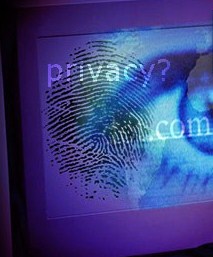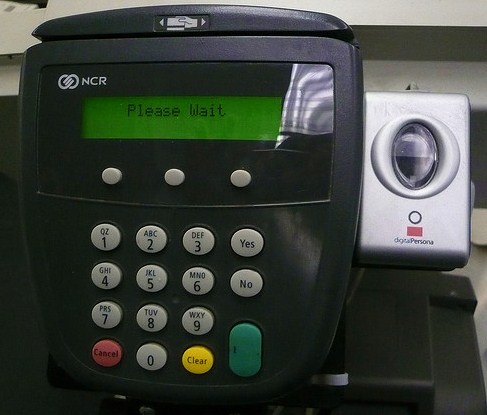Privacy: Fading Fast
NEWS JUNKIE POST
Aug 5, 2011 at 4:33 pmBy Ron Steinman
Privacy should be a basic right. These days, with the pervasiveness of the Internet, it is fast becoming a luxury. That means the sense of who we are and how we perceive who we are is under constant threat by those who deem privacy to be outdated.
 I believe that many people value their freedom more than they do their life. Life without freedom is usually no life at all. That is what the Arab Spring has been about, as well as all people-fueled revolutions. With freedom there should come the right to privacy. Recall that the Stasi in East Germany before the Berlin Wall fell, and that the KGB in the Soviet Union before perestroika, curtailed privacy throughout the Eastern bloc. Freedom did not exist. To be private meant that a person had thoughts that went beyond the all-controlling state. The state always came before the rights of the individual. Today, among others, the rulers of China, North Korea, Vietnam, and many countries in the Middle East, as well as parts of Africa and the old Soviet Union still curtail freedom of thought, and thus limit the concept of privacy. Privacy is dangerous. Be it Fascism, communism, or the iron fist of age-old repression, privacy is not a right. Increasingly, in the age of the Internet, privacy is fast becoming a rare commodity even among those of us who live in the United States and other so-called free nations of the world. If one thinks clearly about privacy in America, you will come away with the realization that it is fast becoming obsolete.
I believe that many people value their freedom more than they do their life. Life without freedom is usually no life at all. That is what the Arab Spring has been about, as well as all people-fueled revolutions. With freedom there should come the right to privacy. Recall that the Stasi in East Germany before the Berlin Wall fell, and that the KGB in the Soviet Union before perestroika, curtailed privacy throughout the Eastern bloc. Freedom did not exist. To be private meant that a person had thoughts that went beyond the all-controlling state. The state always came before the rights of the individual. Today, among others, the rulers of China, North Korea, Vietnam, and many countries in the Middle East, as well as parts of Africa and the old Soviet Union still curtail freedom of thought, and thus limit the concept of privacy. Privacy is dangerous. Be it Fascism, communism, or the iron fist of age-old repression, privacy is not a right. Increasingly, in the age of the Internet, privacy is fast becoming a rare commodity even among those of us who live in the United States and other so-called free nations of the world. If one thinks clearly about privacy in America, you will come away with the realization that it is fast becoming obsolete.
 There are more than a few issues about privacy and the Internet that are hard to ignore. Many are generational. Of course, this disregard of privacy really stems from the pervasive hold that social media has over many people. We are dealing with Millennials, those who are 20-33; Gen Xers, those from 34-46; and Boomers, from 47-66 years old. These, the main users of the Internet, seem the least caring about their privacy, or anyone else’s. They are also the most exposed to outside forces bent on corruption. Anyone older than 66 does not seem to matter to anyone engaged in mass media.
There are more than a few issues about privacy and the Internet that are hard to ignore. Many are generational. Of course, this disregard of privacy really stems from the pervasive hold that social media has over many people. We are dealing with Millennials, those who are 20-33; Gen Xers, those from 34-46; and Boomers, from 47-66 years old. These, the main users of the Internet, seem the least caring about their privacy, or anyone else’s. They are also the most exposed to outside forces bent on corruption. Anyone older than 66 does not seem to matter to anyone engaged in mass media.
Ignorance rules much of their thinking about privacy. And because of that, we ignore the peril brought on by the invasion of our privacy. We are lazy and too trusting. Put all three together and we risk losing the depth of what we are to nameless, faceless algorithms. It starts in the world of commerce where people are working very hard to gather in everything they can about us for the sake of profit. Nothing more. Nothing less. Just money. That is not in itself bad or evil. Think back a few years in time. First, there were newspapers. Then came radio and the mass medium of movies. Then came television, considered by many the ultimate sales tool ever created. That is, until the rise of the Internet, of the World Wide Web 2.0, and all it brings in the way of invading our lives.
 Do not be naïve. The Internet, despite its many virtues, and many rooms, exists mainly for profit. Buy and sell. Sell and buy. Keep in mind that on the Web, someone, usually an emotionless algorithm, tracks and records every move you make whether through a cookie on your computer or a sale a clerk rings up at the supermarket. All your records are then embedded permanently someplace, today, probably on a hopefully dense and impenetrable cloud. Hopefully the cloud will not spring a leak. Most captured information is for use any time by anyone who can pay the attendant access fee. The Washington Post recently reported that there are firms that “now have access to more than a billion records detailing consumers’ personal finances.” That is a billion and growing. Personal should be private. Another point in the story is that there is little “the consumer can do . . . about it.”
Do not be naïve. The Internet, despite its many virtues, and many rooms, exists mainly for profit. Buy and sell. Sell and buy. Keep in mind that on the Web, someone, usually an emotionless algorithm, tracks and records every move you make whether through a cookie on your computer or a sale a clerk rings up at the supermarket. All your records are then embedded permanently someplace, today, probably on a hopefully dense and impenetrable cloud. Hopefully the cloud will not spring a leak. Most captured information is for use any time by anyone who can pay the attendant access fee. The Washington Post recently reported that there are firms that “now have access to more than a billion records detailing consumers’ personal finances.” That is a billion and growing. Personal should be private. Another point in the story is that there is little “the consumer can do . . . about it.”
 Once someone collects all that private information, that party or agency that stores it can then disseminate the material however it wants. Power resides in the possession of information. Information translates into money and influence.
Once someone collects all that private information, that party or agency that stores it can then disseminate the material however it wants. Power resides in the possession of information. Information translates into money and influence.
Importantly, hardly anyone knows we, that is the public, have almost no way of obtaining, for our own use and perusal, any of the information gathered clandestinely by these self-anointed collection companies. Think of it for a moment. You no longer own or possess who you are. In fact, those who collect all your statistics, and any other personal facts about you, most certainly know as much about you as you do. Maybe more. You have lost the ownership you once had over your birthright, and maybe even your image. Thus, the question before us is direct. Who owns all the information others compile about who we are, what we do, and how we do it? It seems reasonable to assume that because the information is about us – you and me—we should own it. We should decide how to use it, if at all, and how others might use it, if at all. But that is not the case. In this time of rampant social media, attitudes toward privacy are far less important to many people. Generational? Yes. But when the invasion of an individual’s privacy changes a life forever, which it can do, each person only has him or herself to blame.
 Senator John Kerry and Senator John McCain are sponsoring the Commercial Privacy Bill to protect consumers who use the Internet from unwanted, and unwarranted, intrusion into their lives. Even if the bill becomes law, no intrusion will ever disappear. No matter who erects a gate to protect an individual, that person will never have enough strength to keep his/her personal life free of unwanted intrusions by unknown forces. Everywhere we turn, someone is devising a new way to scrape and drill into any trail you may have left inadvertently, or because of sloppiness, when trying to protect your right to privacy, assuming it is on your mind. Privacy has been sacred in the past. Then, the means to achieve the goal of learning everything about someone or an organization took old-fashioned digging with a human being slogging through papers and information scattered in many directions. Investigators did not have all the means at hand to achieve their goals. Now algorithms do the dirty work.
Senator John Kerry and Senator John McCain are sponsoring the Commercial Privacy Bill to protect consumers who use the Internet from unwanted, and unwarranted, intrusion into their lives. Even if the bill becomes law, no intrusion will ever disappear. No matter who erects a gate to protect an individual, that person will never have enough strength to keep his/her personal life free of unwanted intrusions by unknown forces. Everywhere we turn, someone is devising a new way to scrape and drill into any trail you may have left inadvertently, or because of sloppiness, when trying to protect your right to privacy, assuming it is on your mind. Privacy has been sacred in the past. Then, the means to achieve the goal of learning everything about someone or an organization took old-fashioned digging with a human being slogging through papers and information scattered in many directions. Investigators did not have all the means at hand to achieve their goals. Now algorithms do the dirty work.
 Today, privacy investigators are using something else to ferret out information about you that in some cases you probably never knew existed. Called “history sniffing,” the idea it implies is abhorrent, and, as such, needs no further explanation. Who knows what tomorrow will bring. Nothing is sacred when it is your life that lies exposed for the world to see, or, in many cases, for a silent few who want to control and dominate every facet of how you live.
Today, privacy investigators are using something else to ferret out information about you that in some cases you probably never knew existed. Called “history sniffing,” the idea it implies is abhorrent, and, as such, needs no further explanation. Who knows what tomorrow will bring. Nothing is sacred when it is your life that lies exposed for the world to see, or, in many cases, for a silent few who want to control and dominate every facet of how you live.
Editor’s Note: Ron Steinman is executive editor and a columnist for The Digital Journalist and The Digital Filmmaker. An award-winning producer for NBC News and NBC’s Today Show, he served as bureau chief in Saigon during the Vietnam War, and later as bureau chief in Hong Kong and London. At ABC News Productions, he produced documentaries for A&E, TLC, The History Channel, and Discovery. He is currently an independent documentary producer, director and writer through his company, Douglas/Steinman Productions. He is the author of eight books, including “Inside Television’s First War: A Saigon Journal,” that details how NBC News covered the war in Vietnam.
Related Articles
- September 28, 2010 Spying on Its Citizens: As American as Apple Pie
- May 2, 2011 Privacy, Freedom, and the All Seeing Eye: The Panopticon
- February 8, 2011 Patriot Act: Protecting You From Freedom And Democracy
- October 28, 2013 Kafkaesque World of Data Mining by the NSA, Search Engines and Social Media
- June 12, 2012 Wake Up People: Your Life is an Open Book
- November 21, 2012 Axis of Death Penalty: China, Iran, Saudi Arabia, Iraq, and the United States













3 Responses to Privacy: Fading Fast
You must be logged in to post a comment Login